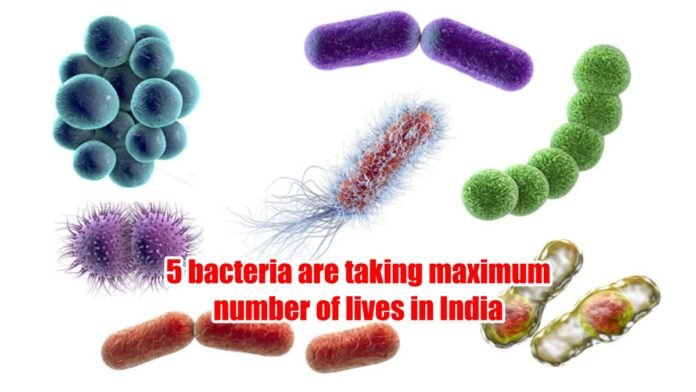
New Delhi: Five bacteria – E.coli, SPpneumonia, K.pneumonia, S.aureus, and A.baumannii – have been identified as the deadliest pathogens in India. According to a report published in The Lancet, infections caused by five bacteria collectively killed more than 6.8 lakh people in India in 2019. While E.coli, which is associated with diarrhea and pneumonia among others, claimed the maximum number of 1.6 lakh lives in the country, S.pneumonia 1.4 lakh, K.pneumonia 1.3 lakh, S.aureus 1.2 lakh, and A. .Bomani has killed 1.1 lakh, people.
This Lancet report is based on deaths due to bacterial infection in 33 species, in which five of the deadliest bacteria have been identified. Overall, the report shows that 13.7 people died due to bacterial infection in India in 2019. Other common bacteria responsible for infection-related deaths include Salmonella typhi, non-typhoid Salmonella, and Pseudomonas aeruginosa.
These bacteria were associated with infection-related deaths reported from other countries as well. The Lancet report states that an estimated 13 million people died due to infection globally. Of these deaths, 7.7 million were linked to the 33 bacterial pathogens studied, with five bacteria alone accounting for more than half the deaths. More than 75% of the 7.7 million bacterial deaths were due to three syndromes including lower respiratory infection (LRI), bloodstream infection (BSI), and peritoneal and intra-abdominal infection (IAA) studies.

Dr. Christopher Murray, co-author, and director of the Institute for Health Metrics and Evaluation (IHME) at the University of Washington explained that these new data reveal for the first time the full extent of the global public health challenge posed by bacterial infections. He said that it is extremely important to keep these results on the radar of global health initiatives so that a deeper dive into these deadly pathogens can be done and appropriate investments can be made to reduce the number of deaths and infections.














































